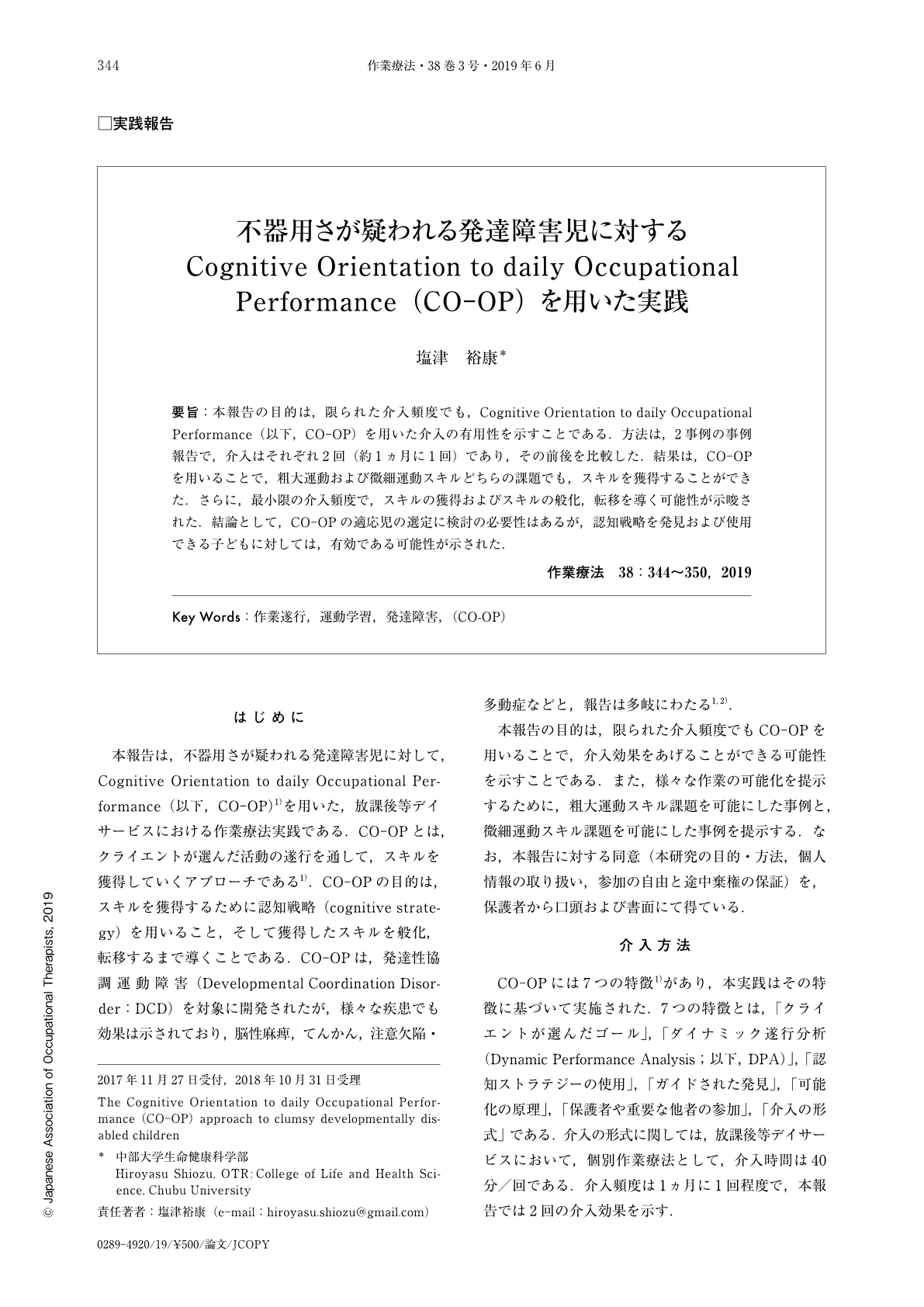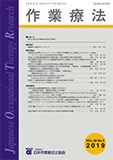Japanese
English
- 販売していません
- Abstract 文献概要
- 1ページ目 Look Inside
- 参考文献 Reference
- サイト内被引用 Cited by
要旨:本報告の目的は,限られた介入頻度でも,Cognitive Orientation to daily Occupational Performance(以下,CO-OP)を用いた介入の有用性を示すことである.方法は,2事例の事例報告で,介入はそれぞれ2回(約1ヵ月に1回)であり,その前後を比較した.結果は,CO-OPを用いることで,粗大運動および微細運動スキルどちらの課題でも,スキルを獲得することができた.さらに,最小限の介入頻度で,スキルの獲得およびスキルの般化,転移を導く可能性が示唆された.結論として,CO-OPの適応児の選定に検討の必要性はあるが,認知戦略を発見および使用できる子どもに対しては,有効である可能性が示された.
Objectives: To examine the effects of limited frequency intervention using the Cognitive Orientation to daily Occupational Performance (CO-OP). Methods: Two cases experienced two interventions over two months, and the effects were compared before and after interventions. Results: Acquisition of both gross and fine motor tasks was possible through CO-OP. Furthermore, the findings suggest that even when used with minimal frequency, the intervention may lead to skill acquisition, skill generalization, and skill transfer. Conclusions: While some consideration is necessary when selecting children suitable for CO-OP, the method has been found to be effective for children capable of discovering and using new cognitive strategies.

Copyright © 2019, Japanese Association of Occupational Therapists. All rights reserved.


